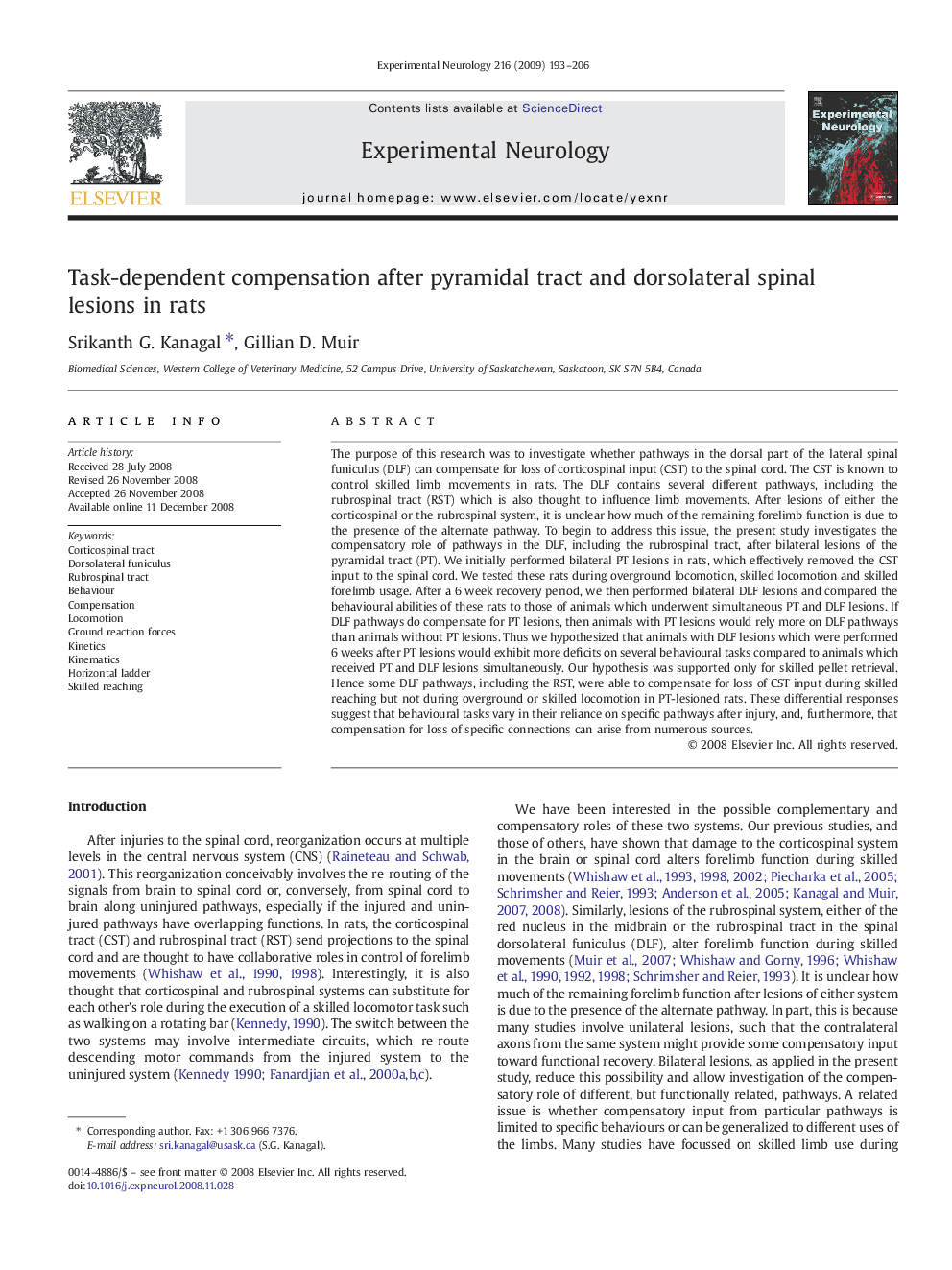| کد مقاله | کد نشریه | سال انتشار | مقاله انگلیسی | نسخه تمام متن |
|---|---|---|---|---|
| 3056463 | 1186567 | 2009 | 14 صفحه PDF | دانلود رایگان |

The purpose of this research was to investigate whether pathways in the dorsal part of the lateral spinal funiculus (DLF) can compensate for loss of corticospinal input (CST) to the spinal cord. The CST is known to control skilled limb movements in rats. The DLF contains several different pathways, including the rubrospinal tract (RST) which is also thought to influence limb movements. After lesions of either the corticospinal or the rubrospinal system, it is unclear how much of the remaining forelimb function is due to the presence of the alternate pathway. To begin to address this issue, the present study investigates the compensatory role of pathways in the DLF, including the rubrospinal tract, after bilateral lesions of the pyramidal tract (PT). We initially performed bilateral PT lesions in rats, which effectively removed the CST input to the spinal cord. We tested these rats during overground locomotion, skilled locomotion and skilled forelimb usage. After a 6 week recovery period, we then performed bilateral DLF lesions and compared the behavioural abilities of these rats to those of animals which underwent simultaneous PT and DLF lesions. If DLF pathways do compensate for PT lesions, then animals with PT lesions would rely more on DLF pathways than animals without PT lesions. Thus we hypothesized that animals with DLF lesions which were performed 6 weeks after PT lesions would exhibit more deficits on several behavioural tasks compared to animals which received PT and DLF lesions simultaneously. Our hypothesis was supported only for skilled pellet retrieval. Hence some DLF pathways, including the RST, were able to compensate for loss of CST input during skilled reaching but not during overground or skilled locomotion in PT-lesioned rats. These differential responses suggest that behavioural tasks vary in their reliance on specific pathways after injury, and, furthermore, that compensation for loss of specific connections can arise from numerous sources.
Journal: Experimental Neurology - Volume 216, Issue 1, March 2009, Pages 193–206